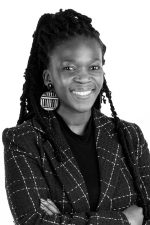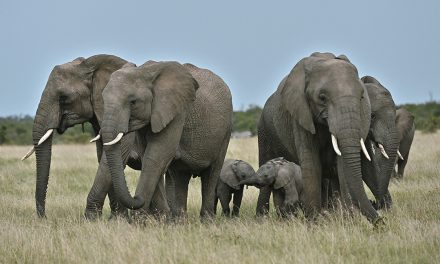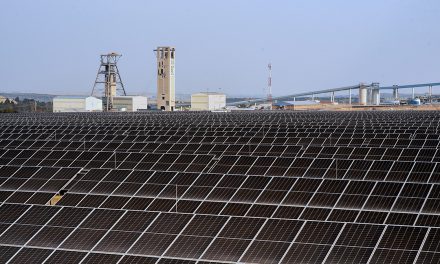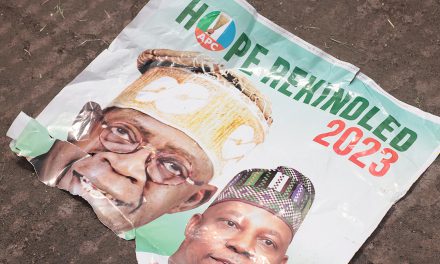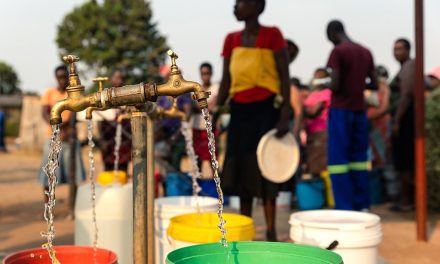The success of the 28th UN Climate Change Conference, COP28, will be in its ability to simplify approaches that deliver inclusive climate action.
Reflecting on last year’s commitments, the establishment of a dedicated climate loss and damage fund to support vulnerable countries that are negatively impacted by climate disasters was rightfully considered a “breakthrough arrangement”. More broadly, COP26 in 2021 witnessed a Glasgow Climate Pact, a commitment to scaling up a collective finance goal beyond 2025 that will be supplemented by annual ministerial dialogue to track progress.

The venue of the COP28 United Nations climate summit in Dubai on December 6, 2023. A record of almost 2,500 fossil fuel lobbyists were registered at the UN climate talks in Dubai, as negotiators wrestled with calls to end all new oil, gas and coal projects to curb global warming. Photo by Giuseppe CACACE/AFP
Overall, COP26 pointed to more deliberate efforts to continue the discussion on long-term climate finance, particularly delivering the $100 billion that was pledged by wealthy nations to less wealthy nations by 2020 to help them adapt to climate change and mitigate further rises in temperature.
While concerted effort is channelled into continued discussions around climate finance, wealthy nations have failed to meet the above-mentioned goal. As such, the global south continues to receive the short end of the stick, despite only contributing 4% of global carbon emissions. For a Just Energy Transition (JET) to successfully materialise, the focus should be on localising JET. Understanding public perceptions and affording citizens greater climate awareness while learning from frontline communities will be essential for a realistic JET to be realised. But what does it mean to have a JET that fully integrates public perceptions to ensure it delivers on its objectives?
Ongoing debates around what JET means, and ‘just’ for who, have percolated COP discussions and continue to gain traction as the world transitions to greener sources of energy provision. Globally and rightfully so, by design, the movement is multi-layered, with varied understandings and approaches that are driven by various actors and institutions. Africa’s position on the transition is no different—multi-layered and complex.
In July 2022, the African Union adopted a common position on energy access and just transition that provides a “comprehensive approach for Africa’s short, medium and long-term energy pathways to accelerate universal energy access and transition without compromising its development imperatives”.
Additionally, the common position stipulates that Africa will continue to deploy all forms of its abundant energy resources, including renewable and non-renewable energy, to address energy needs. This includes natural gas, green and low-carbon hydrogen, and nuclear energy. This will be parallel to the uptake of renewables in the long term for a low-carbon and climate-resilient trajectory.
With this understanding, definitional clarity and transition pathways should be provided and owned by respective countries, both in developed and developing contexts. Practically, countries must consider individual community needs and expectations of what a JET should encompass—a JET for the people. Ultimately, “what is just for a country and its people relies on the values and interests of the specific society, as highlighted by Zongwe and Musikavanhu from UCT’s Law Department.”
Access to energy is currently significantly lower in Africa compared to other regions. Approximately 567 million people are without access to electricity (the lowest in the world), and according to the 2021 ND-GAIN Country Index, 7 out of 10 most vulnerable countries are in Africa. Although Africa only emits about 4% of global carbon emissions, it loses between $7 and $15 billion a year due to climate change impacts.
By contrast, 23 developed countries like Canada, Germany, Japan, the United States and large parts of Europe have contributed about 50% of global greenhouse gas emissions over the past century. It is worth noting that China is responsible for nearly 14% of global greenhouse gases, thus making it the world’s largest emitter. Although there is a vast gap between carbon emission contributions, the effects and consequences are more severe in Africa. These realities are indicative of an unjust international system.
COP28 has the potential to effectively address climate change challenges, but it aims to actualise commitments made and decentralise decisions and agreements. One way of doing this is by not only mapping out practical ways of achieving targets but also by adopting people-centred policies that reflect domestic understanding of and commitments to climate change.
COP28 and the people
In considering public perceptions of climate change, we can assess an underexplored measurement of the impact of COPs—public perceptions. COP is an annual event where world leaders gather to make important decisions, but to what extent are these decisions and agreements decentralised to the ordinary citizens of Africa? Upon acknowledging that the ‘Just’ in JET is largely about the people, how do ordinary citizens in Africa understand climate change? Do agreed-upon decisions translate to a greater sense of agency and awareness?
As outlined, climate change has devasting impacts on people’s lives, and the human cost is expected to rise in the coming decades. Therefore, it is critical to adopt coordinated interventions from businesses, governments, civil society, and ordinary citizens. Global agreements made at COP28 need to translate to increased domestic capabilities and the buy-in of citizens and political leaders, but this depends on awareness of climate change, a sense of agency, and public understanding of climate risk.
According to the Afrobarometer Round 9 survey, more Africans say that over the past 10 years, droughts and floods have been more severe. When asked if respondents had heard about climate change, 50% of Africans said they had heard of climate change. Surprisingly, and as Figure 1 indicates, between 2016 (round 7) and 2023 (round 9) there is a 6-point decrease in the number of Africans that have heard of climate change. This decrease may be indicative of several factors, including but not limited to language barriers, a decrease in the percentage of respondents surveyed, or population growth. On the contrary, there is a 6-point increase in those who have not heard of climate change.
Figure 1: Public perceptions on whether climate change is making life better or worse
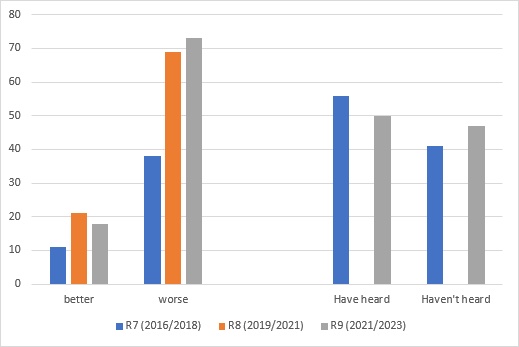
As Figure 1 illustrates, although there is a decrease in those who have heard of climate change, more Africans perceive climate change to be getting worse. Between 2016 and 2023, there has been a 35-point increase in those who perceive climate change to be getting worse. Of perhaps greater interest are those who perceive climate change to be getting better. Between 2016 and 2018, 11% of Africans said that climate change was getting better; this increased to 21% in 2019 and 2021 and slightly decreased to 18% in 2021 and 2023. This perception is particularly high in Sudan (25%), Mozambique (17%), Sao Tome and Principe (16%) and Namibia (13%).
The Afrobarometer rounds 7, 8 and 9 coincide with COP22 (2016) and COP28 (2023). Within these eight years, important and ground-breaking decisions were made. Still, there appears to be a gap between these decisions and the decentralisation of knowledge.
These trends indicate several factors, which may include language barriers and a lack of education and initiatives on climate change. For the former, ordinary citizens may not be aware of the term ‘climate change’ but may be better able to describe what it is. These are complexities that should be considered at COP28. Buzzwords at COP28 (and previous COPs) include: climate adaptation, loss and damage fund, climate resilience, renewable energy and so forth, but how will world leaders make this language intelligible at the ground level? As mentioned above, climate change is a global issue that requires a coordinated global response, including a greater sense of agency from ordinary citizens.
Despite decreases in the number of Africans who have heard of climate change and an increase in those who say climate change is making life better in their country, there is a significant sense of agency among ordinary Africans. When asked who is primarily responsible for limiting climate change, 44% of Africans say that it is primarily the government’s responsibility to limit climate change.
As Figure 2 illustrates, this is followed by 31% of Africans who say that they are primarily responsible for limiting climate change.
Figure 2: Public perceptions on who is primarily responsible for limiting climate change
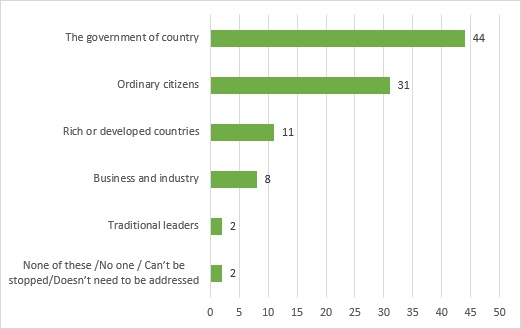
This coincides with 86% of Africans who think that ordinary citizens need to do more to limit climate change. This finding is very encouraging and suggests that ordinary Africans are willing to do something about climate change. Interestingly, only 11% of Africans say that rich or developed countries are primarily responsible, and fewer say that businesses and industries are responsible. This is indicative of a sense of ownership and agency among ordinary citizens.
In closing, it should be in COP28’s interest to focus less on processes and more on agreeing and adopting practical and binding measures that reflect the realities and perceptions of ordinary citizens. COP28 and future COPs’ long-term effectiveness and impact will be in their ability to simplify decisions and agreements that bridge the gap between high-level decision-making and ordinary citizens’ understanding.


